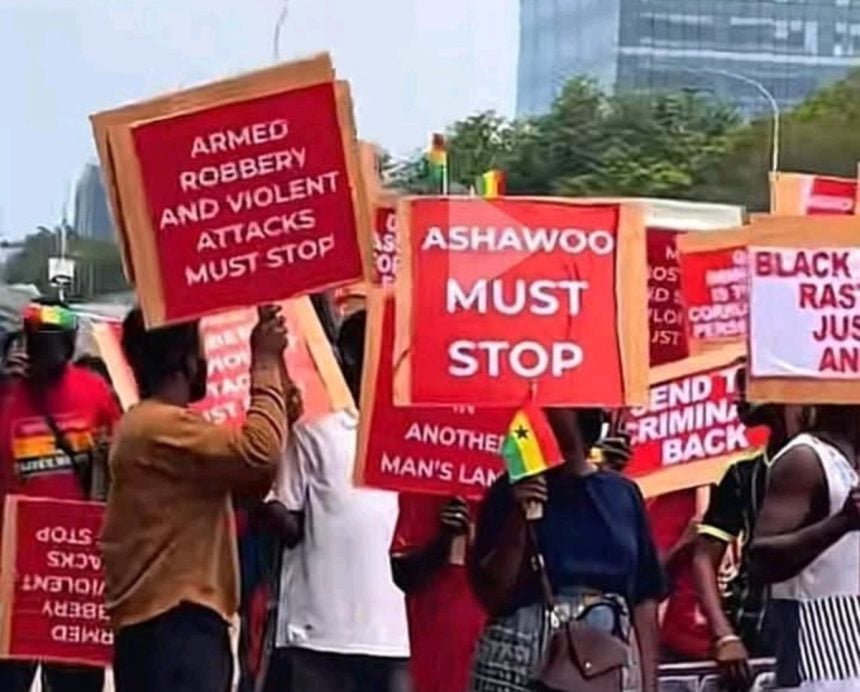INTERNATIONAL

‘NIGERIA MUST GO’ PROTEST IN GHANA SPARKS TENSIONS OVER 1983 DEPORTATION HISTORY
Ghana’s ‘Nigeria Must Go’ Protest: A Stirring Echo of 1983’s ‘Ghana Must Go’
Tensions flared this week between Nigerians and Ghanaians following a viral protest video showing crowds in Ghana carrying placards that read “Nigeria Must Go.” The protest has reignited historical sentiments tied to a painful chapter from 1983, when Nigeria expelled thousands of Ghanaians in a move that came to be infamously known as the "Ghana Must Go" era.
Speaking on Channels TV’s Morning Brief on Friday, popular Ghanaian media personality and strategist, SOG Precious, claimed that the protest was a “retaliation” for the events of 1983. According to him, Ghanaians still hold strong memories of that mass deportation under Nigeria’s then-President Shehu Shagari.
“It is a form of retaliation for what happened in 1983,” Precious stated. He also alleged that some Nigerians, particularly young women, are reportedly involved in illegal activities such as prostitution in Ghana — a sentiment he said is fueling public anger.
In response, Nigeria’s Minister of State for Foreign Affairs, Bianca Odumegwu-Ojukwu, has called for calm, assuring citizens that “there is no cause for alarm.” She emphasized that the Nigerian government is closely monitoring the situation and maintaining diplomatic engagement with Ghanaian authorities.
Nigeria’s High Commissioner to Ghana, Ambassador Demola, also clarified that the protests are not targeted at all Nigerians but are likely directed at individuals whose activities may violate local laws or disrupt Ghana’s economic system.
“The focus seems to be on those involved in informal trading or other questionable practices,” he explained during an interview with Arise News.
The events have opened up a broader conversation around migration, mutual respect, and the long-standing cultural and economic ties between the two West African countries. While emotions may be running high, both governments have reiterated the importance of unity and peaceful coexistence in the region.
As tensions ease, many hope that this moment can serve as a reminder that history should guide understanding — not fuel division.
"This represents a significant development in our ongoing coverage of current events."— Editorial Board









